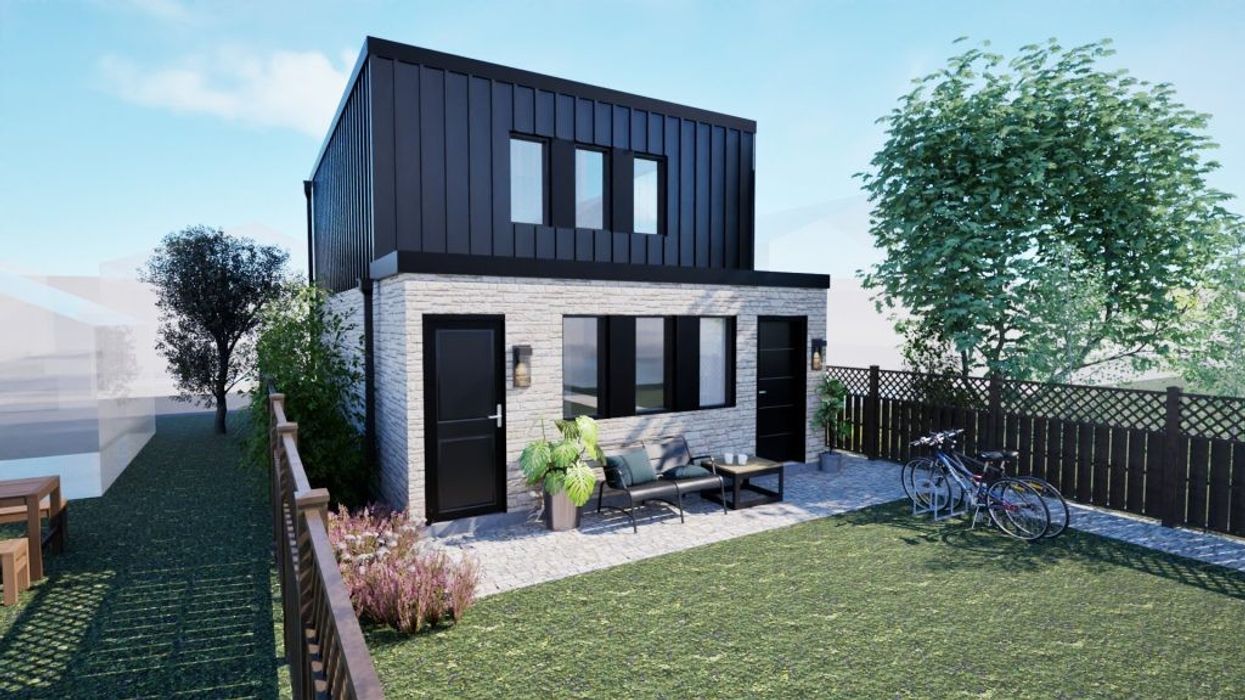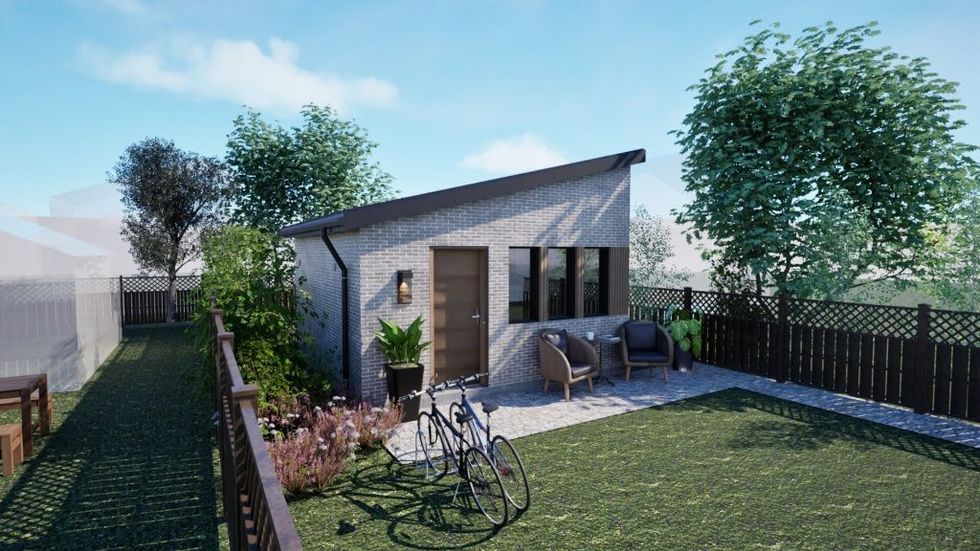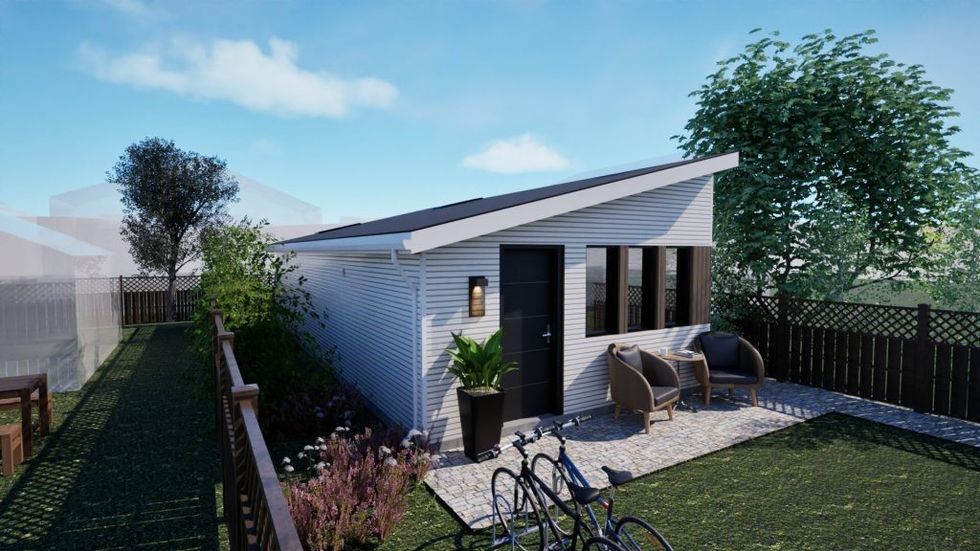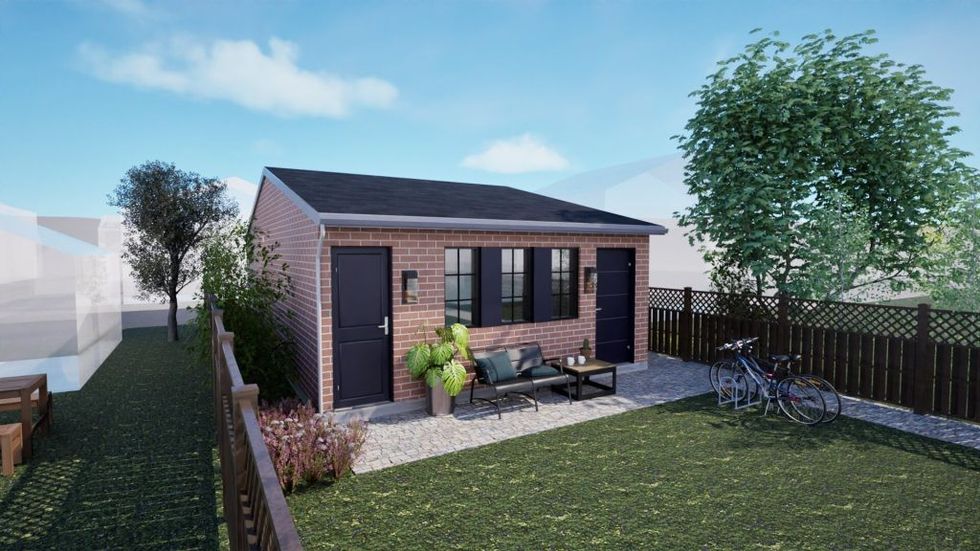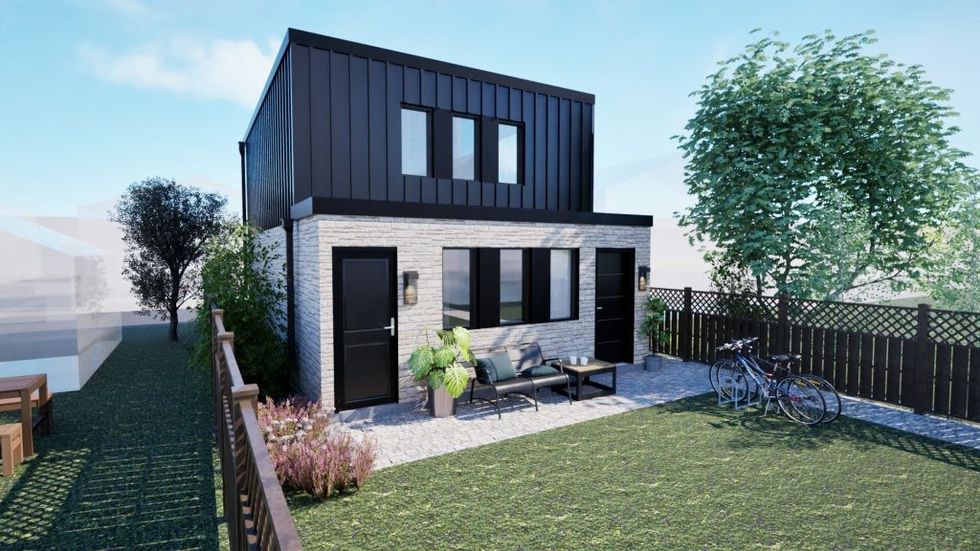In 2018, the City of Toronto amended zoning bylaw to allow laneway suites on residential properties in the Toronto and East York District, expanding the permissions citywide by 2020 and with the addition of garden suites in 2022. The amendment was intended to increase the number of housing options and infill opportunities in the city, ultimately helping to improve affordability for Torontonians.
Now, the City is implementing additional measures to cut down approval timelines and make the construction of garden and laneway suites more accessible, including releasing free blueprints, expanding online services for building permit submissions, and including garden and laneway suites in the existing Reliance on Professional Engineer’s Seal program.
“We need to build more affordable homes faster that people can afford. The City of Toronto is taking action to cut red tape and accelerate housing development in our city," said Mayor Olivia Chow in a press release on Friday. "Today’s announcement will simplify approvals at city hall by enabling online applications, supporting faster approvals and providing pre-approved designs to accelerate building. We’re tackling the housing crisis by enabling more housing development, including missing middle homes.”
The flashiest of the new measures is the collection of 'made in Toronto' building plans for laneway and garden suites, which include detailed plans for both studios and two-bedroom units. The designs are free, publicly accessible, and standardized.
According to the press release, each design has been prepared by the City and aligns with the Ontario Building Code. The idea is to save builders time and money by streamlining and speeding up the design stage, though applicants will still be expected to prepare and submit building permit applications, and site-specific code and zoning reviews will still be conducted.
Mississauga launched their free garden suite designs last June, but when only one application was received in the first two months, the City began thinking of ways to encourage development. At the time, Andrew Whittemore, Commissioner of Planning and Building for the City of Mississauga told STOREYS this could include providing residents with more information about materials, measurements, and costs, streamlining the application process by reducing unnecessary requirements like grading plans, and waiving certain fees.
As of April 2018, laneway and garden suite projects in Toronto enjoy deferred development charges that can be paid up to 20 years after the issuance of a building permit. As well, the City is expanding the Reliance on Professional Engineer’s Seal program, which permits licensed professional engineers to sign off on designs, vouching that they do not violate the Ontario Building Code.
The program was implemented as a pilot in 2024 and, as of July 14, will include "accessory structures such as laneway suites and garden suites, mechanical systems, as well as enhanced fire protection measures." According to the press release, the measure is expected to speed up the time between submission and occupancy by around 28 days.
Additionally, the City is also enabling self-service permit application submissions laneway and garden suites, alongside multiplex conversions, secondary suites, new houses, and new residential units. Essentially the system would streamline permits by automating document checks and submission processes, further reducing timelines.
Finally, what the City calls 'Demonstration Plans' will be shared with the public to help residents understand where garden and laneway suites, as well as multiplexes, can be built across Toronto.
The City is expected to deliver 285,000 new homes by 2030, but in 2024, Toronto logged only 20,999 housing starts, falling short of its goal of 23,750 housing starts for the year. The City also failed to meet the deadlines laid out for several year-one milestones in their Housing Accelerator Fund (HAF) Action Plan, before missing out on millions in bonus funding delivered through the HAF in March for municipalities that met their housing targets and milestones and proposed additional initiatives to accelerate housing.
Toronto says they saw 850,000 homes proposed between 2020 and 2024 — the largest in its history, according to the City. Today's measures are apart of a larger effort by the city to meet housing targets, address lengthy timelines, and speed up approvals to deliver more housing.
- “It’s Shocking”: Toronto Looks To Undo Garden Suite Permissions On Portion Of Parkmount Road ›
- City Of Mississauga Announces Free Garden Suite Building Plans ›
- How Mississauga Is Improving And Expanding Its Free Garden Suite Plans Program ›
- Are Mississauga's Free Garden Suite Plans Spurring Development? ›
